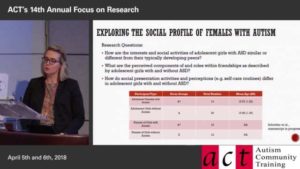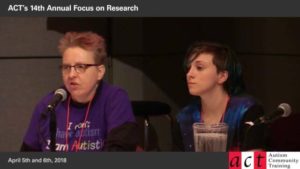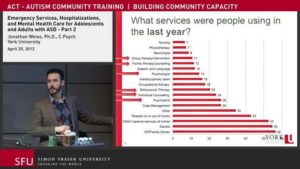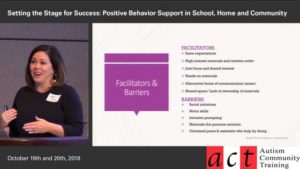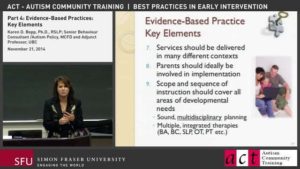Filmed April 2021 – edited into four parts; total 205 minutes
Download the presentation handout (pdf)
View project overview infographic (pdf)
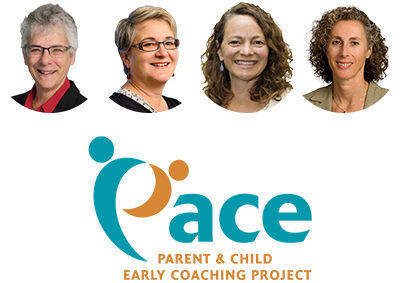
This presentation provides information about lessons learned from the Parent And Child Early Coaching project (PACE), conducted in collaboration with child development centres and Indigenous agencies in 16 BC communities from 2018-2020.
Included are discussions of:
- The early signs of autism and the importance of early diagnosis.
- Parent coaching and how it differs from other types of parent-child support for toddlers with social communication delays.
- What the research tells us about the effectiveness of this approach.
The PACE Coaching research team describes, with presentations from coaches, trainers, parents and other community partners:
- How the parent coaches involved in the project were trained and what the outcomes were.
- A related project for Indigenous families: Parent-Child Connections.
Primary Presenters
Pat Mirenda, PhD, BCBA-D
Dr. Mirenda is Professor Emerita in the Department of Educational & Counseling Psychology and Special Education and past Director of the Centre for Interdisciplinary Research and Collaboration in Autism at UBC. She was the Principal Investigator in the PACE Coaching project.
Paola Colozzo, PhD, RSLP
Dr. Colozzo is an Associate Professor in the School of Audiology and Speech Sciences at UBC. A speech-language pathologist, she was Co-Investigator in the PACE Coaching project and was primarily responsible for assessment training, monitoring, scoring, and coding.
Veronica Smith, PhD
Dr. Smith is a Professor and Associate Chair in the Department of Educational Psychology at the University of Alberta. She was a Co-Investigator in the PACE Coaching project and was primarily responsible for assessing the factors that contributed to and affected implementation.
Wendy Ungar, PhD
Dr. Ungar is a Senior Scientist in Child Health Evaluative Sciences at The Hospital for Sick Children and a Professor in Health Policy, Management and Evaluation at the University of Toronto. She was a Co-Investigator in the PACE Coaching project and was primarily responsible for conducting a comparative cost analysis.
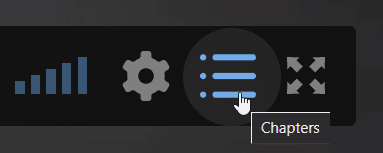
New feature on Autism Videos @ ACT
Navigate videos with “chapters”
Chapters help you navigate through a video to find the information you’re looking for. Click the blue dots on the timeline to navigate chapters, or see all chapters through the chapters icon on the bottom right of each video.
Part 1: Background and Rationale
Topics Covered:
- What is social communication and why is it important?
- What does it mean if social communication is delayed?
- Baby Navigator Video https://www.youtube.com/watch?v=urJs4aw_O3w
- How is social communication related to parent coaching?
- How is parent coaching different than other types of parent-child support?
Part 2: PACE Coach Training
Topics Covered:
- Who we trained
- How we trained
- What our partners had to say
Part 3: Research Studies
Topics Covered:
- Randomized Controlled Trial
- A sub-project for Indigenous families called Parent-Child Connections
- Research Study Objectives
Part 4: Moving Forward
Topics Covered:
- Understanding the costs of coaching
- Understanding the breadth of services families use
- Implementation outcomes: what does it take?
- Wrap up: final words from our partners
Parent Coach Training Opportunities (view pdf version here)
- For training in the Early Start Denver Model:
- an Introductory workshop is required first.
- This is followed by an Advanced Workshop.
- Finally, this is followed by a Parent Coaching workshop.
All workshops are currently offered online.
- Autism Navigator offers numerous online course for parents and for professionals. The JumpStart to Coaching in Everyday Activities course is focused on parent coaching.
- Project ImPACT parent coach training is available online.
- The Help is in Your Hands website includes a Provider Resources section. Among the many resources, you will find a series of four free recorded webinars on parent coaching and an online training syllabus.
Note: The mentoring and feedback provided through these online training programs varies widely. Some offer no mentorship at all and none of them are able to offer the frequency or duration of mentorship that was provided in the PACE Coaching project.

